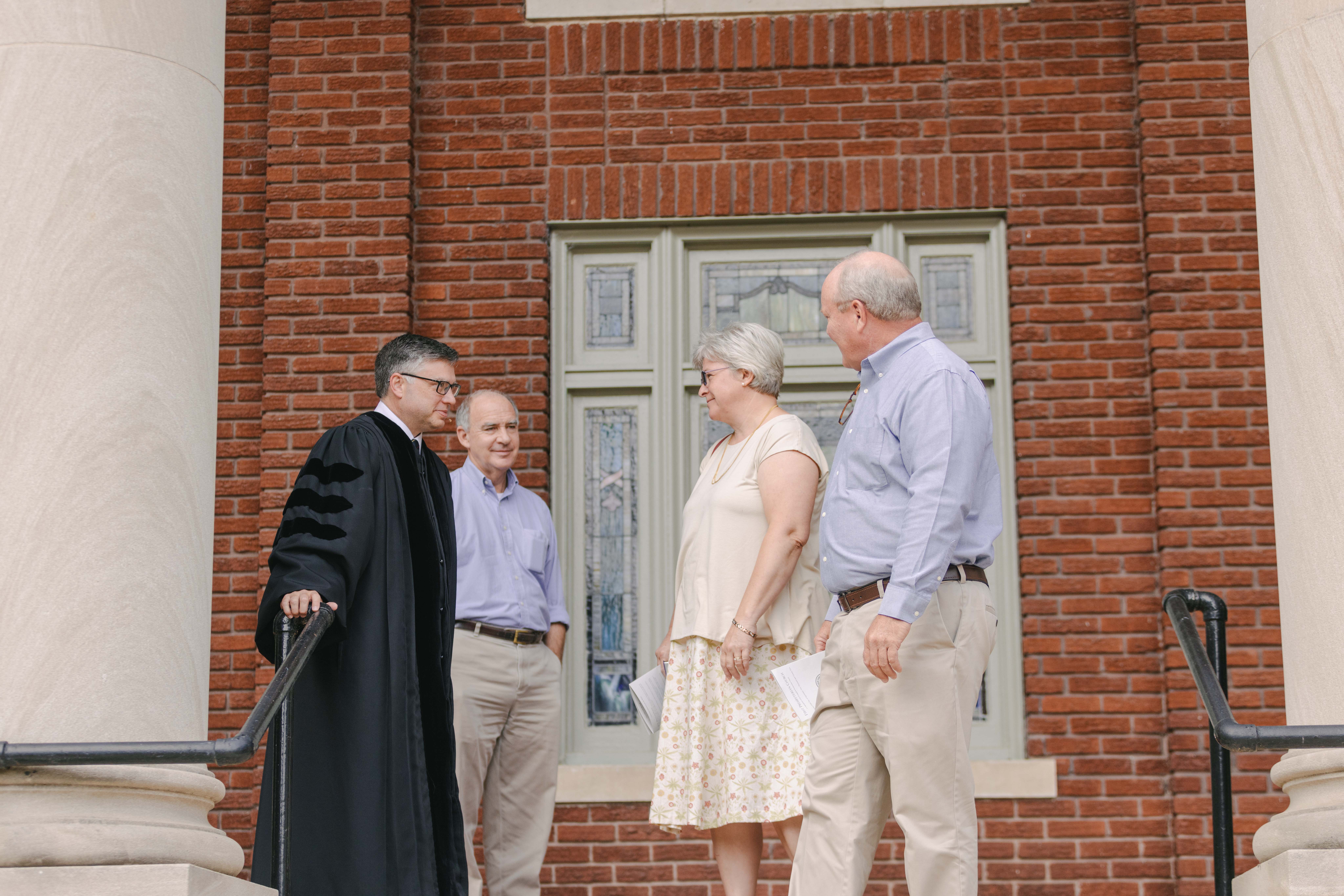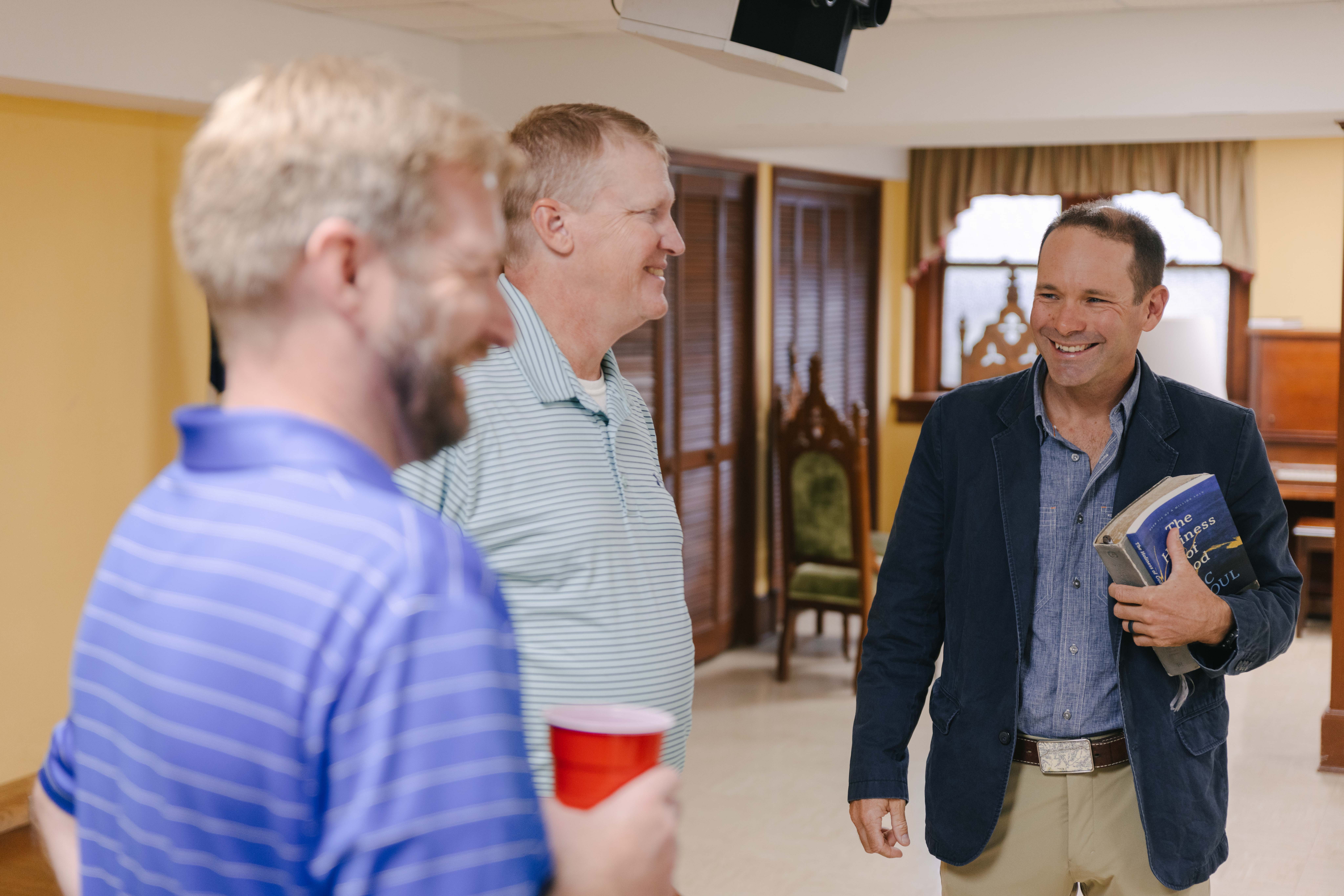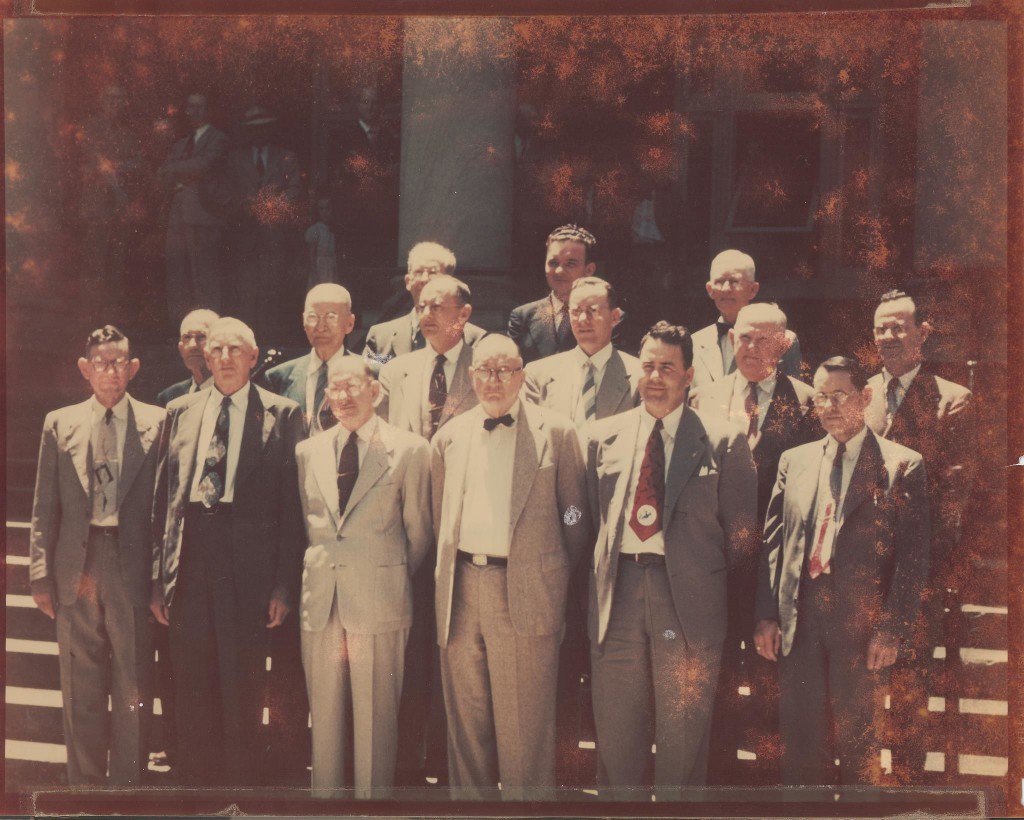About Us
First Presbyterian Church exists to proclaim Christ’s Kingdom through word and deed. We hope to see lives, relationships, and our community flourishing through redemptive love of Jesus Christ.
We desire to be a community that not only lives under the direction of God’s Word, but exhibits the joy and grace we find in Jesus to each other and our neighbors. Our Sunday morning worship service is traditional but not stuffy, our Wednesday evening services are casual but reverent.
As member of the Evangelical Presbyterian Church we are Reformed in theology, Presbyterian in government, Evangelical in spirit, and Missional in commitment.


Presbyterian
Presbyterian describes how we organize and govern ourselves. It comes from the Greek word meaning “ruled by elders.” A team of trusted leaders, our pastor and elders, serve the church. These leaders work together as peers in directing the life and mission of the church.
This team approach is consistent with the vital connection we see in the New Testament, where followers of Jesus Christ are connected to one another in relationships built on mutual beliefs, trust, and accountability. Just as individual Christians are connected to one another, individual congregations are connected under Christ as the Head of His Church. Because of this connection, we believe we can accomplish more for Christ and His kingdom working together than working separately
There are three organizational levels in our system:
The local church.
The presbytery (regional gathering of churches).
The General Assembly (the national gathering of churches and our national office).
We are intentionally “local church focused;” our presbyteries and Office of the General Assembly work to serve the local church and its leaders as they pursue the mission God has called them to.
Reformed
Reformed means that we trace our roots to Protestant Reformation, when John Calvin and others led the movement to take the Church back to the Scriptures. It also means that we believe in the absolute sovereignty of God, and that the highest good is His glory. This historical and theological heritage is often expressed in the solas of the Reformation: God’s grace is the only way to be reconciled to Him; faith is the only means of receiving God’s grace; Christ alone is the ground of God’s saving grace; Scripture is the only infallible authority for belief; and God’s glory alone is the ultimate purpose for our lives.
Sola Scriptura - Scripture alone
Sola Gratia - Grace alone
Sola Fide - Faith alone
Solus Christus - Christ alone
Soli Deo Gloria - to the Glory of God alone
Evangelical
To be evangelical is to believe that Jesus is God the Son who became flesh and lived among us and died for us. Through Jesus Christ, the Kingdom of God has been inaugurated, thereby freeing people from the guilt and power of sin through personal faith and repentance. This good news of God’s love needs to be shared (ideally in relationships) with those who are alienated from God. This salvation is found in no one else. As Jesus said, “I am the Way, the Truth and the Life, no one comes to the Father but by Me” (John 14.6). We express this priority on evangelism by stating it in our governing documents as the first “duty” of the church. This priority is evidenced by our emphasis on church planting, church revitalization, and world missions.
Missional
To be missional is to declare that God has a mission: the creation of a community of men, women, boys, and girls saved through His Son Jesus Christ. He has called His church to that mission “in Jerusalem, Judea, Samaria, and to the ends of the earth” (Acts 1.8). In the EPC, we have always been committed to global missions with a particular focus on unreached people groups in Islamic countries.
As this commitment continues, we acknowledge the “local nature” of God’s mission: that the United States is a vast and growing mission field. In this mission field, we believe God has strategically placed our churches for the purpose of effectively reaching out to those around them with the good news of Jesus Christ. Our churches are communities of authentic disciples of Jesus Christ who gather for celebration, prayer, and teaching–and then disperse locally and globally as His missionaries to love and serve people.
A key element of God’s mission for our churches is to look outward and to move outward into the mission field that is their community. In the EPC, “The local church is where the action is” as it pursues this mission. As a result, our presbyteries and national office exist to serve and resource our local churches. A fuller statement of missional can be found on the here.
History
First Presbyterian Church was formed on August 15, 1829 by the Presbytery of the Western District of Tennessee under the ministry of the Reverend Samuel Hodge. The congregation originally worshipped in the Court House. In 1839 the congregation merged with Mt. Carmel Presbyterian Church, five miles south of Covington. In 1851 the congregation was reestablished and built a meeting house on the corner of Main and Church streets. This structure was destroyed by fire in 1882. A second church building was erected in 1883 and served the congregation until 1924 when the current neoclassical church was built. Several congregations have merged with FPC over the years including Centre Presbyterian Church in 1914, what had been the Covington Cumberland Presbyterian Church in 1920, and most recently, in 2000, the Mt. Carmel Presbyterian Church, whose historic 1854 meeting house is still regularly used for church events.

